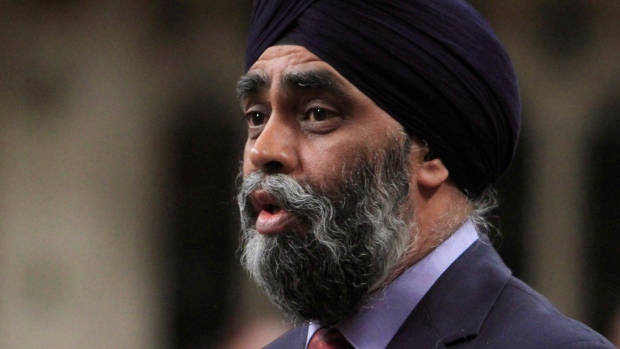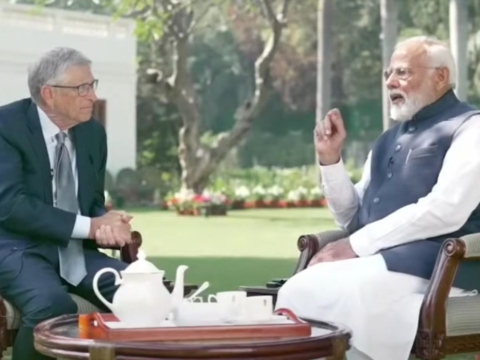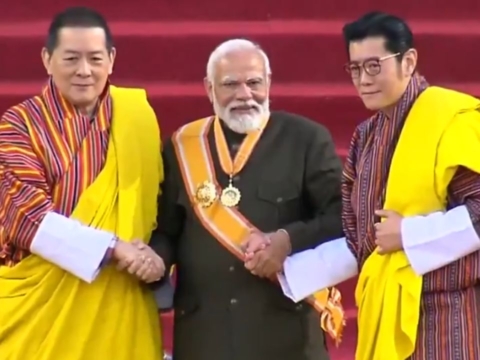
SAN FRANCISCO (Diya TV) — A recent motion filed the Ontario Legislature condemning 1984 anti-Sikh riots in India as a “genocide” has led to some uncomfortable conversations for Defense Minister Harjit Sajjan, who is currently on his first official state visit to his home country.
During a Wednesday conference call with reporters, Sajjan said the subject was broached during a meeting with Indian Prime Minister Narendra Modi.
Sajjan’s itinerary has included meetings with senior Indian officials, including Defense Minister Arun Jaitley and External Affairs Minister Sushma Swaraj. Sajjan himself immigrated to Canada from India with his family when he was five years old, downplayed any tension brought about by the motion’s passage on April 6, but also sought to put distance between the federal and provincial wings of the Liberal Party.
“We had to remind my counterparts that, one, (the Ontario Legislature) is a provincially, democratically-elected body,” Sajjan said. “It was a private member’s motion. The Liberal Party of Ontario is not the federal Liberal Party.”
It’s a sensitive topic, especially since Canadian Prime Minister Justin Trudeau’s inner circle are former Ontario Liberals and the government of Premier Kathleen Wynne is sometimes among the prime minister’s most strident provincial allies.
More than 3,000 Sikhs are estimated to have died in the anti-Sikh riots that followed the assassination of then Prime Minister Indira Gandhi by her two Sikh bodyguards. The Indian government refuses to recognize the anti-Sikh riots as genocide and has put its estimate of dead at 2,800.
The motion, which received the support of all three parties in the Ontario Legislature, became a hot topic in New Delhi prior to the minister’s seven-day tour, with many Indian media outlets condemning it. Modi’s government “have come out publicly to address this issue,” Sajjan said. “And I appreciated their efforts on this and look forward to them moving forward even further. That’s what happens when you build a good relationship between governments, you can discuss topics like this.”
The Indian prime minister promised Sikhs he would work to deliver justice for the victims of November 1984 riots.
Ontario is not the only legislative body in North America to describe the 1984 massacre as a genocide. In April 2015, the California state assembly passed a similar resolution. Regardless, Sajjan made certain there were no confusions on where he stood personally.
“My personal viewpoint on this is that Canadians have a direct reason to be concerned,” he said. “Prime Minister Modi has shown leadership on this topic. We will have the opportunity to discuss this further. Canadians have the right of freedom of speech.”
Earlier this week, the highest-ranking Indian official in Punjab state said he refused to meet Sajjan, Canada’s first defence minister of Sikh origin, and accused him of being a sympathizer of a Sikh separatist movement. Capt. Amarinder Singh claimed Sajjan was a “Khalistani sympathizer,” which refers to a Sikh nationalist movement that sought to create a Sikh homeland in the Punjab region of India and Pakistan.
Sajjan dismissed the allegation Wednesday, saying the Khalistani are not active in Canada.
“There is no movement within Canada,” he said. “If there was any evidence, any type of intelligence, our security forces would be looking at this immediately. The comments that were made by him, I don’t know what the motivations were around that.”
Information from CBC contributed to this report.




